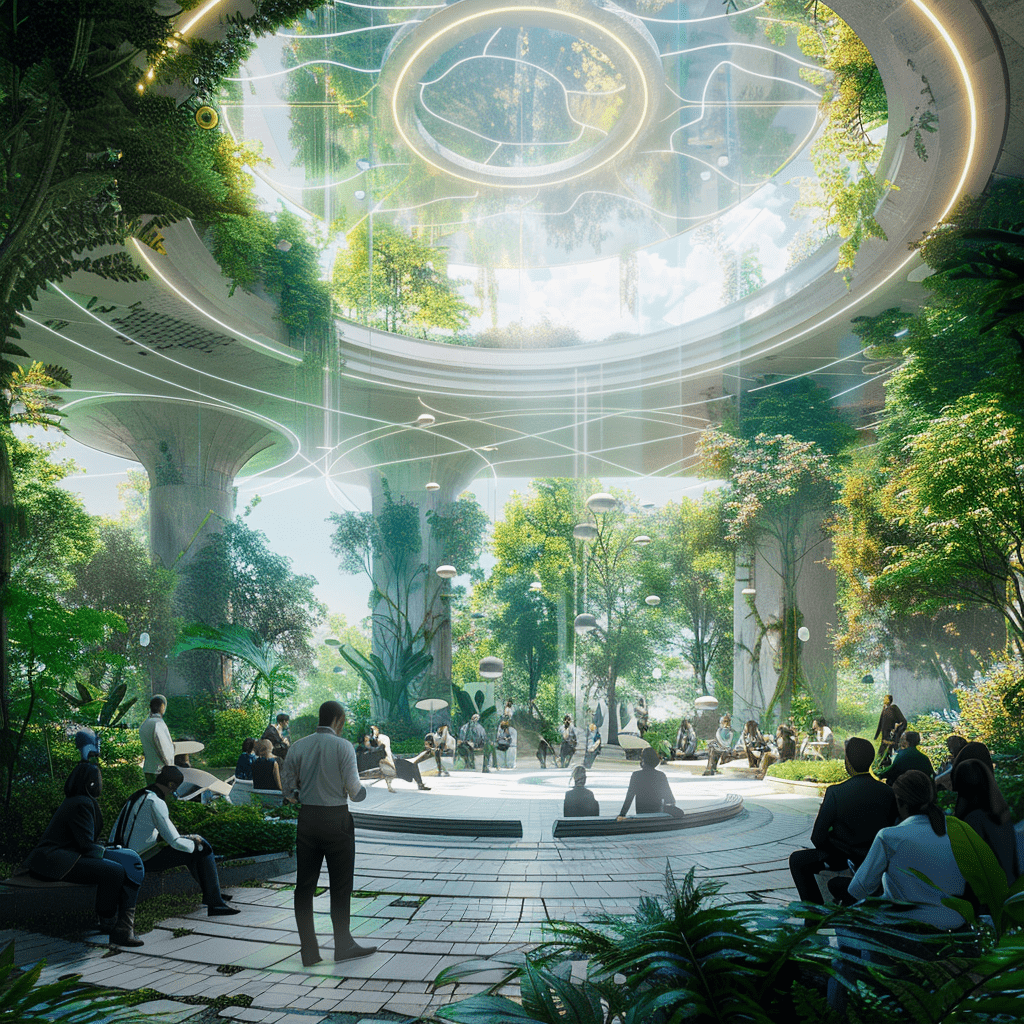
What If the Housing Crisis Isn’t a Crisis at All?
Envision the housing crisis as a chance for transformation. Shift focus from economic growth to well-being. Picture sustainable homes, green spaces, and thriving local businesses—a realistic path to communities that balance economy with ecology, fostering healthier, meaningful lives.
—
What if I told you the housing “crisis” isn’t the real problem? Buckle up, because we’re about to reframe this. Instead of seeing housing as something to fix in a broken system, what if the bigger question is: If you could wave a magic wand to make it happen, what kind of community do we REALLY want to be in?
Let’s start by zooming out. Right now, our communities are largely built with economic goals at their core: maximizing revenue, expanding tax bases, and creating systems of ownership and debt. From zoning policies to towering skyscrapers, this “growth-first” mentality has shaped everything. The result? A mismatch between how we want to live and the spaces we inhabit. The housing crisis, therefore, isn’t an isolated issue; it’s a symptom of communities shaped by what we might call a lower state of consciousness. It’s about serving the economy rather than serving people. But what would happen if we designed communities focused on well-being and longevity instead?
Imagine a world where communities aren’t a maze of transactions, but places built to foster long, healthy, and meaningful lives. In this vision, “housing” isn’t just a roof over our heads but an invitation to thrive. And the answer doesn’t lie in simply building more houses (though we need them!) but in how we build, where we build, and why we build.
Imagine a community designed with “high-consciousness” principles. This means shifting priorities from economic development alone to holistic development, considering mental and physical well-being as essential components of community planning. Picture parks as abundant as parking lots, walking trails connecting neighborhoods, local businesses blending seamlessly into residential areas, and every house within walking distance of fresh produce. Housing becomes just one piece of a broader, human-centered puzzle.
What we’re talking about here isn’t pie-in-the-sky idealism; it’s a realistic pivot towards a way of life that balances economy with ecology. In a high-consciousness community, houses might be multi-functional, incorporating green spaces, shared amenities, and plenty of gathering spots. Buildings would have more sustainable designs, lowering carbon footprints. Homes could be adaptable, accommodating families in various life stages and leaving room for aging in place.
This approach asks us to ditch the familiar mindset of “home as asset” and think of “home as health.” We’re looking at a lifestyle that actively promotes longevity, where people of all ages feel invested in the life of their community. Schools would be places of learning and wellness; clinics could be community hubs. Think beyond retirement homes—envision villages that support people of all generations to age with dignity.
To get there, we need to prioritize creativity and collaboration over conventional profit. What if local governments, developers, health experts, and educators came together with a single purpose: to build communities focused on *healthy living*? The more people who rally around this mindset, the closer we’ll get to a reality where the housing crisis becomes a chapter of the past—and where the future is grounded in a high-consciousness approach that supports each person’s healthy longevity.
So, the question isn’t whether the housing crisis can be solved, but collectively how willing we are to evolve the very foundations on which we build. Individually, are you willing to lead the change you know needs to happen? Are you willing to let go of limitations holding evolution back? And, how can you invest now to see healthy-returns-on-investment for those you care about? How willing are we to evolve the very foundations on which we build?
Let’s dare to build communities where housing isn’t a problem to fix but a key to unlocking lives well-lived.
______
Angela is an OpenExO Solutions Team Ambassador, Founder of Futurville, and uniquely certified and trained as a provider of Purpose | Profit | Property Accelerator products and services, with 35+ years’ experience creating and hosting impactful arts/culture, travel, tourism, sports, and business attraction events and experiences.
At FuturVille, we decided to live for 100+ more years with optimal health. We know the best way to do this is to be in the right environment with other healthy longevity enthusiasts. We also know the best way to predict the future is to create it. So, we are creating prototype villages – our 1st one is in Canada where you can “Live Long & Prosper”. The village is a showcase of amazing products, services, expertise, and assets that contribute to healthy longevity under the imperative that now is the best time to do it. We intend to empower landowners to join the network and create a customized ‘healthy longevity village’ for their people.
ExO Insight Newsletter
Join the newsletter to receive the latest updates in your inbox.









